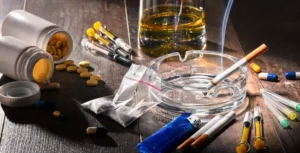Sober living
Alcohol Overdose: Causes, Risk Factors, and Symptoms

People may feel euphoric while drinking alcohol because ethanol stimulates the release of dopamine, a feel-good chemical in the brain. This effect on the brain’s dopamine system can lead to alcohol dependence. Alcohol intoxication occurs when a person drinks an excess of alcohol in one period. BAC and the number of drinks you consume are very rough indicators of impairment. Alcohol intoxication can vary by tolerance (meaning whether your body is accustomed to the presence of alcohol through repeated use), your gender, body weight, body fat percentage, and other factors.
- Alcohol poisoning is serious and needs prompt medical attention.
- With no gag reflex, a person who drinks to the point of passing out is in danger of choking on their vomit and dying from a lack of oxygen (i.e., asphyxiation).
- Ingesting alcohol and other drugs together intensifies their individual effects and could produce an overdose with even moderate amounts of alcohol.
- In some countries, it is also an offense to serve alcohol to an already-intoxicated person,[39] and, often, alcohol can only be sold by persons qualified to serve responsibly through alcohol server training.
- Hypoglycaemia occurs due to ethanol’s inhibition of gluconeogenesis, especially in children, and may cause lactic acidosis, ketoacidosis, and acute kidney injury.
Risk Factors for Alcohol Poisoning
- The emergency room physician will monitor your vital signs, including your heart rate, blood pressure, and temperature.
- If you experience an overdose, your doctor will ask you about your drinking habits and health history.
- If vomit is inhaled into the lungs, it can cause a person to stop breathing.
- Even if the person survives, an alcohol overdose like this can lead to long-lasting brain damage.
The first two to three drinks typically lead to a BAC of 0.01–0.07%. A person can usually tell when they are intoxicated, but it may be challenging to spot the signs in others. Ethanol also increases levels of adenosine, an inhibitory neurotransmitter that promotes sleep.
Lifestyle and home remedies

The emergency room physician will monitor your vital signs, including your heart rate, blood pressure, and temperature. People who binge drink have a higher risk of experiencing a warning sign or symptom of alcohol poisoning is. Binge drinking is defined as the consumption of five or more alcoholic drinks (for men) or four or more drinks (for women) within two hours. But as you continue to drink and your BAC rises, your blood vessels start to constrict and reduce blood flow and, therefore, heat distribution.
Binge Drinking and Alcohol Toxicity

When this happens, your body might go from taking 12 to 20 breaths per minute to less than eight breaths. Irregular breathing, in which a 10-second or more gap between breaths occurs, https://ecosoberhouse.com/article/alcohol-vs-drugs-comparison-of-addictions/ is also a possibility. This may be quickly followed by a drop in blood oxygen levels, where you might notice the skin turning blue, starting with fingers, toes, and lips.
Alcohol Poisoning Symptoms and What to Do
A person does not need to exhibit all of these symptoms to be in danger of dying or sustaining permanent brain damage. Despite many people gaining a pleasant intoxicating effect from alcohol, the substance is a depressant. Specifically, it slows areas of your brain that are responsible for basic life functions. This includes breathing, heart rate, body temperature, and gag reflex, which prevents you from choking.
Talk to Someone About Alcoholism Treatment
However, there are ways to prevent yourself from getting into a position where your life might be at risk. Even when it’s not fatal, alcohol can cause some unpleasant — and sometimes dangerous — symptoms. Someone experiencing an overdose won’t necessarily have all these symptoms, but if they’re breathing is slowed or you can’t wake them up, it’s time to call 911 and stay with them until help arrives. As a general rule, one standard drink will increase your BAC by 0.02 percent. So, while it might only take four drinks for you to be legally intoxicated, it’d take quite a bit more to kill you. The effects of alcohol are felt a little differently from person to person as a number of factors influence the amount of alcohol each person can withstand.
- Signs of an overdose include confusion, unconsciousness, vomiting, and more.
- Generally, once your blood alcohol concentration (BAC) is 0.40 percent or over, it’s dangerous territory.
- The amount of alcohol it takes to prove fatal for a person may vary by individual factors, such as body weight and metabolism.
- Drinking too much too quickly can affect breathing, heart rate, body temperature and gag reflex.
- If you experience an alcohol overdose, your outlook will depend on how severe your overdose is and how quickly you seek treatment.
- The best way to reduce your risk is to keep your alcohol consumption low or consider non-alcoholic beverages as an alternative.
Calling 911 and keeping your friend safe until help arrives is the first step to safely treating someone with alcohol poisoning. Additionally, some drinks, such as mixed drinks, can have more than one serving of alcohol in them. This can make it harder to keep track of how much alcohol you’ve actually consumed. The time it takes alcohol to both have an impact and subsequently leave your system can depend on many factors, such as your weight and how many drinks you’ve had within a given time. Some people may be able to drink more alcohol than others, with fewer effects. Having too much alcohol in your blood stops your body working properly and can be life-threatening.

An alcohol overdose requires hospitalization so doctors can monitor a person’s condition for any complications. The symptoms of alcohol intoxication range from mild to severe, depending on how much alcohol a person consumes and how quickly their body metabolizes it. Severe alcohol intoxication — or alcohol poisoning — is a dangerous condition that requires immediate medical attention. Alcohol intoxication refers to a temporary condition that occurs when a person drinks an excess of alcohol at one time. It causes physical and behavioral symptoms that range from mild to severe.
- The best way to avoid alcohol poisoning is to not drink or to limit your alcohol consumption.
- Age, sensitivity to alcohol (tolerance), gender, speed of drinking, medications you are taking, and amount of food eaten can all be factors.
- Generally, a BAC of 0.08% to 0.4% is considered “very impaired,” possibly setting off symptoms like confusion, nausea, drowsiness, and difficulty speaking or walking, according to the U.S.
- Meanwhile, the liver is able to process alcohol at a rate of about one standard drink an hour, so somebody who spaces out their drinks is likely to decrease their chances of dying from drinking alcohol.
